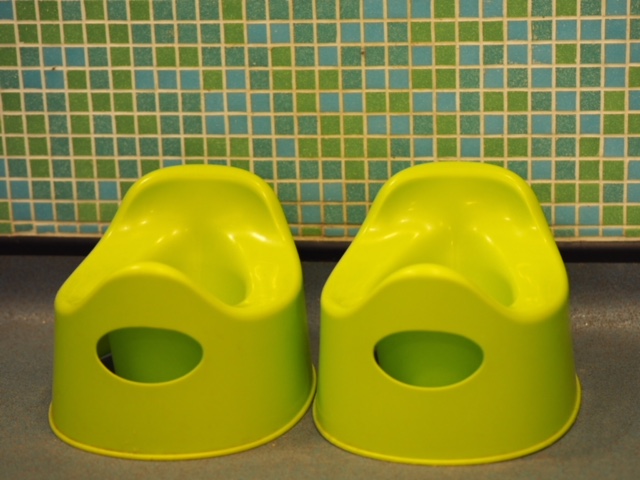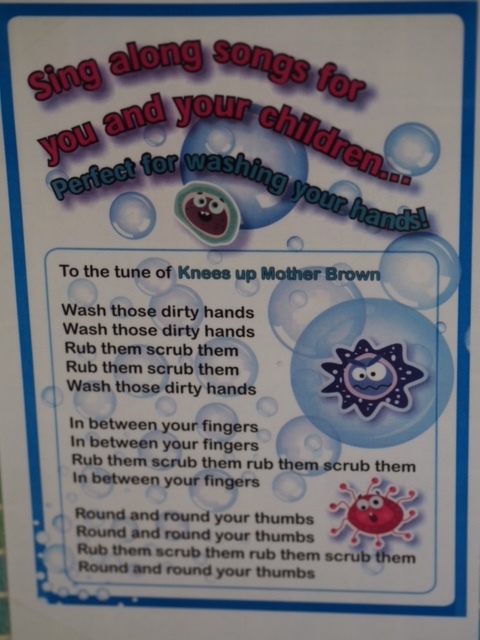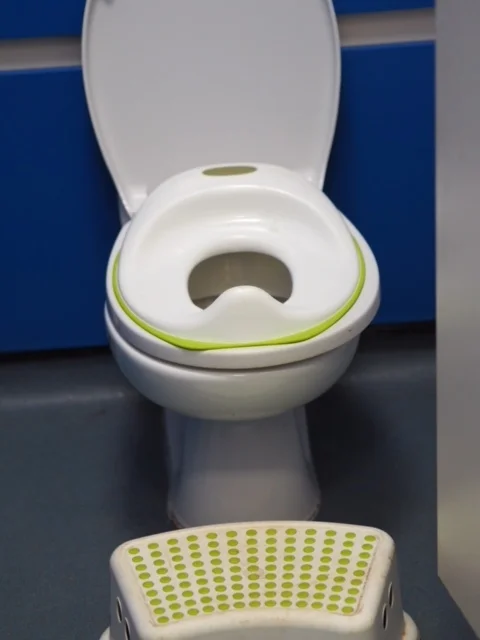There is defiantly a look…. a look that many parents have when the words potty training are mentioned for the first time. It is a mixture of confusion, fear and of guilt for having not done it already.
In our Burrow room, potty training is a process that we are hoping to have at least started by the time the children move onto the pre-school room, however more and more children are leaving the Burrow not yet using the potty or toilet and we got to thinking why this is.
We discussed the fast pace of life we all live in and the busy weeks that many of our children have, time with grandparents, time at nursery and maybe time with a childminder or another setting. This combined with many parents unsure of when to start introducing the potty is leading to children being potty trained later and in many ways making the whole process arguably harder.
It is suggested that children show signs of being ready to use the potty at around 18-24 months and from personal experience I have to say I agree with this and believe that the process is easier if started at a younger age. We often talk about children who we feel have ‘missed the boat’ with regards to training and as a result have reached an age where they have anxieties around the potty or have simply become lazy and find it much easier to just use their nappy. Therefore, my first bit of advice would be to introduce the idea of the potty when they are young, around the age recommended of 18months – 2 Years.
When considering if your child is ready to use the potty I would look at their overall development, do they have good understanding? Are they able to communicate? (This does not have to be verbally) are they showing an interest/understanding when you use the toilet or change their nappy. If you feel your child is making good progress it would not be detrimental to introduce the idea of the potty and see how things go. Obviously all children are different and some will not be showing signs of readiness, for whatever reason, and so equally it is important to know the child and focus on where they are developmentally.
If you feel your child could be ready Start by having a potty around, personally as soon as my children could walk (around 12-14 months) I had a potty in our bathroom and downstairs. I would allow my children to have a bit of ‘nappy free time’ before bath time and found this was a key time to encourage them to sit on the potty or ‘catch’ a wee. This combined with subtle praise was the key to sparking an interest and an understanding of what the potty was for, before I knew it my children were often using the potty in the evenings before bath time. The same approach could be taken when getting dressed in the mornings.
The NHS website suggests if children build their confidence with wee’s on the potty first then they are more comfortable when it comes to having their first poo on the potty. The key to potty training for me is timing and knowing when to take the leap and go for it. After months of my son successfully using the potty at bath times, and building his confidence, one morning when getting dressed and having a bit of ‘nappy free time’ he came and told me “poo mummy”, my instant thought was “oh no, where is it?” but he led me to the potty in the bathroom and had taken himself for a poo on the potty. This for me was the moment when I knew the time was right.
My second piece of advice is, if you are doing it, go whole heartedly into it. After the successful poo incident, I went out and bought lots (and I mean lots, no one needs to wash pants after a poo accident) of pants and laid them out to show my son. I simply said ‘no more nappies, these are your pants’ to which he replied ‘no pants’. His response didn’t surprise me as we must remember that children will often choose to remain with what they know and what they are comfortable with. Children need their trusted adults to be confident and clear about new things and give them the reassurance that this is ok and it is what we need to do. I remained firm and told my son he was a big boy now and that there were going to be no more nappies from the morning. This gave him time to think about and explore his new pants, we also read books on potty training and decorated his white potty with stickers of his choice. The very next day my son went into pants and he only wore nappies for bedtimes from that point.
My next piece of advice would be to use pants and pants only. Personally, I don’t like the use of pullups as children don’t know they are wet. For me children learn more quickly if they understand what it feels like to wet themselves, which ultimately doesn’t feel very nice. The staff at Free Rangers would also rather use pants, we don’t mind changing the clothes if you can cope with the washing. Untimely pants make it clear that they are potting training now and stops the confusion that I think pullups bring.
My sons potty training journey lasted for one week, he had lots of accidents on the first day, a few less the second and even less the third and by day four he was dry. My son had a poo accident everyday for a week and then he got it and we were on the home straight. Obviously, there was the occasional accident, but it was rare and normally because he was far to busy to take himself to the toilet. My son was 28 months old when he was potty trained and dry at night also by the time he was Three. The age and timescale really doesn’t matter, and I am not pretending to be a potty-training expert, however I know that starting young with my son worked and the process was quick. I duplicated the process with my daughter to the same success, the only change I made was to do the night time at the same time, which meant she was completely dry much quicker. In my experience children who are older do not seem to take to the process as freely and there seems to be more emotions involved.
The ultimate message of this guide is to not be afraid to go for potty training if you feel the time is right and when you do take the leap, don’t go back without good reason. Every child’s ‘right time’ will be different and it is our job to be attuned to each child and pick up on the signs, that can often be earlier than we think. Sometimes we make a misjudgement and need to stop the process and try again later and that is ok, every child is different and ultimately, they will all get there in the end. My message is just sometimes we wait for too long, we wait for the child to tell us and the reality is children need guidance, direction, rules and sometimes for someone they trust to just decide, this I feel is true for so many things…. But that’s another story.



